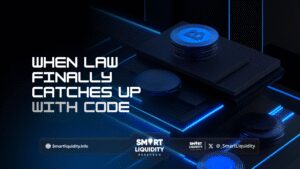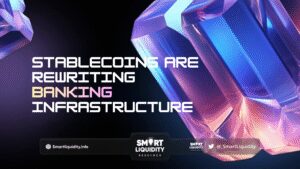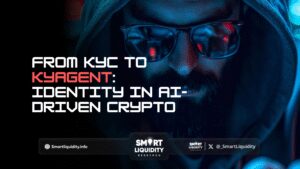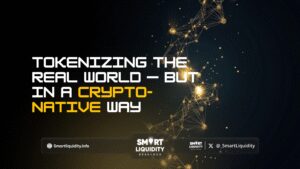Privacy Enhancements with Zero-Knowledge Proofs


In today’s data-driven world, privacy is more vital than ever. Zero-Knowledge Proofs (ZKPs) let users prove information is true without revealing the data itself. Once a theory from the 1980s, ZKPs now power innovations in finance, healthcare, identity, and blockchain. This article dives into their impact and future.
What Are Zero-Knowledge Proofs?
Zero-Knowledge Proofs allow one party, known as the prover, to demonstrate the truth of a specific statement to another party, the verifier, without conveying any information apart from the fact that the statement is true.
This concept may sound counterintuitive, but it has powerful implications. For example, you could prove that you have a valid password to access a system or that you are a resident of a country — all without revealing the password or your national ID.
There are several key types of ZKPs:
- Interactive ZKPs: Require multiple rounds of communication between prover and verifier.
- Non-Interactive ZKPs (NIZKs): Condense this exchange into a single message, suitable for automated systems and blockchains.
- zk-SNARKs (Succinct Non-Interactive Argument of Knowledge): Highly efficient, widely used in privacy-focused blockchains like Zcash.
- zk-STARKs (Scalable Transparent Arguments of Knowledge): Offer transparency, better scalability, and quantum resistance.
These proof systems are rapidly evolving to meet performance, transparency, and scalability demands in real-world environments.
Why Privacy Matters in the Digital Era
The modern digital economy relies on the constant collection, exchange, and monetization of user data. From targeted advertising to predictive algorithms, our personal information fuels trillion-dollar industries. However, this creates several serious concerns:
- Data breaches are increasingly common, leading to identity theft, financial loss, and reputational damage.
- Government surveillance continues to rise, threatening civil liberties and democratic freedoms.
- Regulatory obligations like Know Your Customer (KYC) or Anti-Money Laundering (AML) require users to reveal extensive personal details to centralized institutions.
This is where ZKPs shine: they offer privacy-preserving verification, allowing systems to comply with rules while minimizing user data exposure. Instead of trusting centralized custodians, users can now trust math.
Real-World Applications of Zero-Knowledge Proofs
Far from being limited to academia or theory, ZKPs are actively being deployed across industries:
Sector | Use Case | Benefit |
Finance | Proving solvency of an exchange without revealing balance sheets | Boosts user confidence without leaking private info |
Healthcare | Verifying vaccination or test results | Maintains medical confidentiality |
Decentralized Identity | Proving citizenship or age | Enables self-sovereign, selective disclosures |
Voting Systems | Anonymous yet auditable voting | Ensures privacy without compromising legitimacy |
Supply Chain | Proving ethical sourcing without exposing partners | Increases trust while preserving business secrets |
Messaging Apps | Group access control using ZKPs | Enhances user safety and prevents spam or fraud |
By introducing trustless privacy into legacy and emerging systems, ZKPs are revolutionizing how we think about identity, verification, and data ownership.
Zero-Knowledge Proofs in Blockchain and DeFi
Blockchain technology is transparent by design. Every transaction, balance, and smart contract interaction is visible to anyone. While this openness supports decentralization and accountability, it severely limits privacy.
ZKPs offer a robust solution for this contradiction.
Privacy Coins
ZKPs power some of the most advanced privacy-preserving cryptocurrencies:
- Zcash uses zk-SNARKs to shield transaction metadata, offering optional privacy features.
- Aleph Zero and Mina Protocol explore lightweight chains and ZKP-integrated consensus mechanisms.
zk-Rollups and Layer 2
A major scaling innovation in Ethereum is the zk-Rollup:
- Multiple transactions are processed off-chain.
- A succinct ZKP is posted on-chain to prove their validity.
Projects like zkSync, StarkWare, Polygon zkEVM, and Scroll are leading this development, enhancing scalability while preserving privacy and reducing gas fees.
DeFi Use Cases
- Private credit systems: Share creditworthiness without full identity exposure.
- Confidential trading: Users can swap tokens without leaking amounts or wallet addresses.
- Governance voting: Ensure votes are cast without revealing who voted for what.
By integrating ZKPs, DeFi platforms can expand adoption among institutions and users who require stronger privacy guarantees.
Challenges and Limitations
Despite the excitement, ZKPs face several technical and practical challenges:
Computational Overhead
Generating zero-knowledge proofs can be resource-intensive, especially for complex computations. While zk-SNARKs are succinct, proving times are long and require significant computing power. zk-STARKs mitigate this but result in larger proofs.
Trusted Setup
Some ZKP systems require a trusted setup — a one-time event that, if compromised, could undermine the entire system’s security. Newer systems aim to eliminate or decentralize this process.
Developer Accessibility
Building ZKP applications requires a steep learning curve. Languages like Circom, Noir, or Cairo are emerging, but they still lack the maturity and community support found in general-purpose programming.
Regulatory Uncertainty
Privacy technologies often draw scrutiny. Regulators may resist anonymous systems, even if they’re cryptographically secure. Building ZKPs into systems that enable selective disclosure and auditability is a key compliance path forward.
The Future of Trustless Privacy
The next phase of digital infrastructure is being built on trust-minimized, privacy-centric principles — and ZKPs will be foundational.
Decentralized Identity (DID)
ZKPs will underpin identity frameworks where users can prove claims (e.g., age, location, degree) without storing sensitive data on-chain. Projects like Polygon ID, Worldcoin, and ZK-ID are leading the charge.
Cross-Chain Verification
ZKPs can enable verifiable messages between chains, allowing interoperability without exposing internal data. This opens the door to cross-chain DeFi, decentralized insurance, and multi-chain governance systems.
AI and Data Privacy
In the future, ZKPs may be used to:
- Prove that a machine learning model was trained on legitimate data.
- Confirm a prediction’s accuracy without exposing the model itself.
This would allow ethical AI deployments where privacy and accountability coexist.
The vision is clear: move from a world where we expose everything to one where only necessary truths are shared — and nothing more.
Conclusion
Zero-Knowledge Proofs are not just a cryptographic novelty, they’re a paradigm shift in how we design trust, privacy, and verification in the digital world. In an age increasingly defined by surveillance and data misuse, ZKPs offer a way forward: one where individuals retain control over their identities, assets, and interactions.
From finance and identity to supply chains and voting, ZKPs are actively reshaping the technological landscape. As adoption grows and tooling improves, we will likely see zero-knowledge protocols underpinning the next generation of secure, user-centric internet infrastructure.
In the end, the most private system is not one that hides data — but one that doesn’t require you to share it at all. Zero-Knowledge Proofs make that possible.




